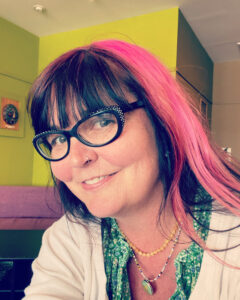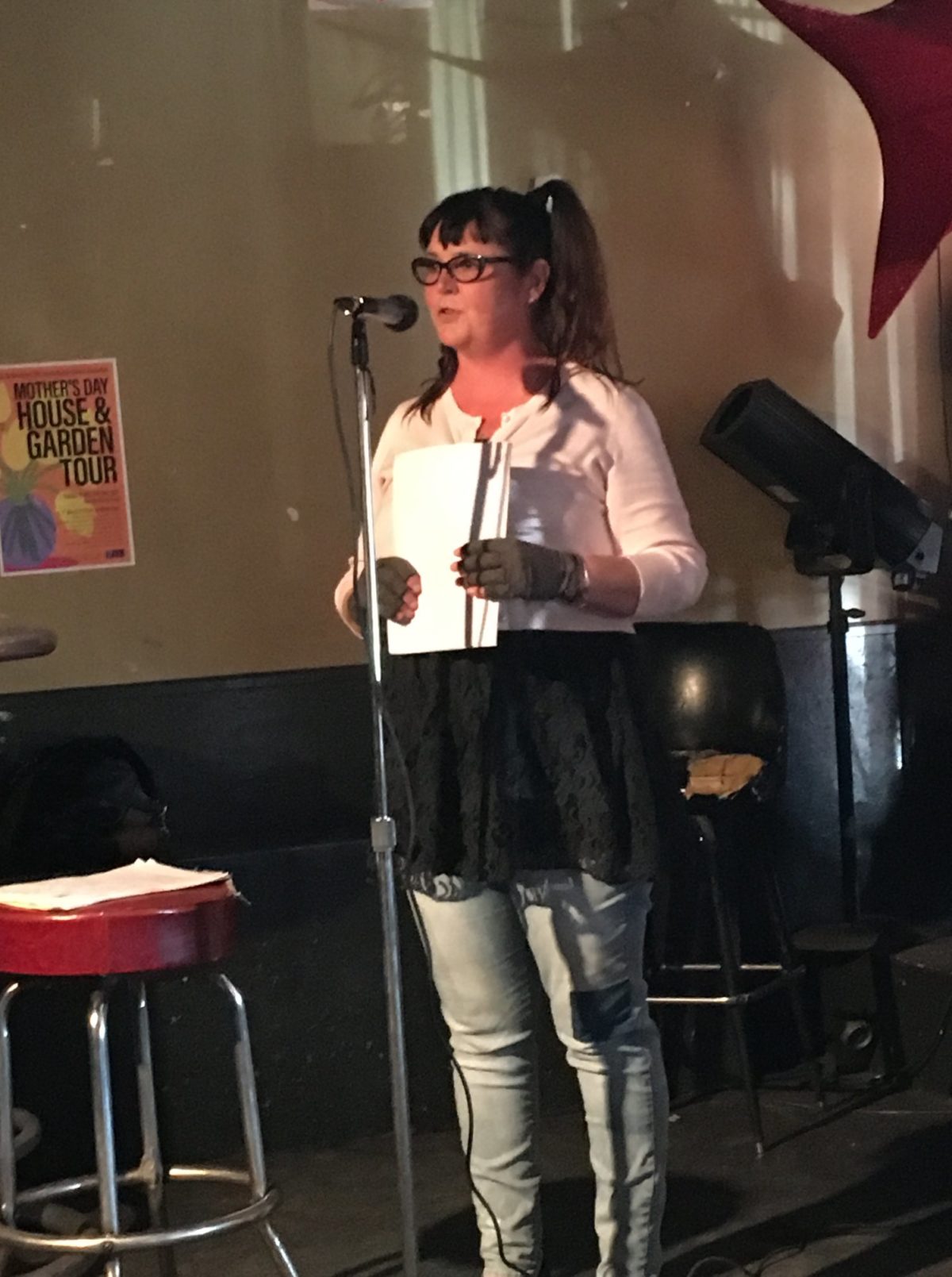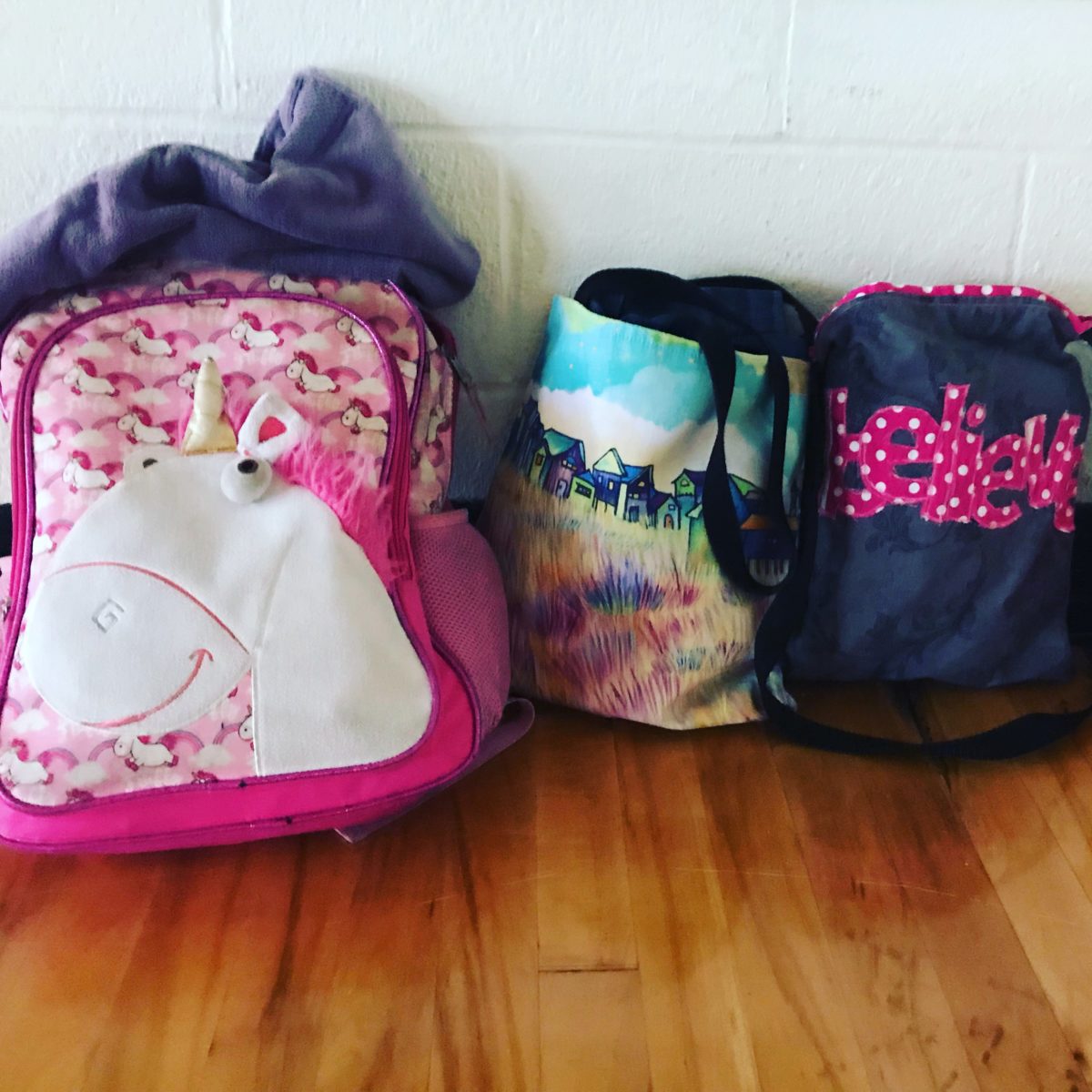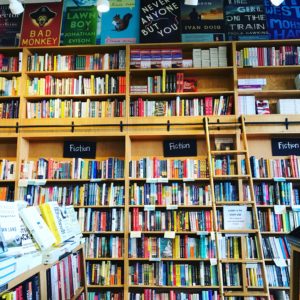
I went to San Francisco this summer and saw Susan Rivers’ novel, The Second Mrs. Hockaday listed as a Staff Pick at Book Passage in the Ferry Building. I’d just had the pleasure of meeting Susan at The Greensboro Bound literary festival. My family and I were walking around the wharf, waiting to take the ferry to Alcatraz when I found this incredible bookstore. I get so excited when I’m in a beautiful bookstore, filled with hand-written staff recommendations, surrounded by the brightly colored spines, and then I see books by authors I know.
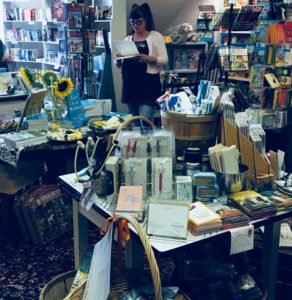
Independent bookstores are an author’s best friend. This year, the owner and book buyer for my local bookstore Downtown Books in Manteo, Jamie Hope Anderson, championed my third novel, Lost in the Beehive, and when I say, “championed,” I mean she went out of her way to promote it. We threw a book launch where she made a signature cocktail with our local rum distillery, Kill Devil Rum’s honey pecan rum. She ran ads in local papers and radio. We got together and brainstormed ideas. She wrote letters to her friends at other independent bookstores and mailed out copies. She also carried copies and handed them out at SIBA, the Southern Independent Bookseller’s Alliance tradeshow. She’s told everyone that Beehive was the book to buy, and then O Magazine agreed with her, listing it as one of their top ten books in their May issue.
Last year, right after Lost in the Beehive, came out I visited Quail Ridge Books for the second time. I seriously want to have a sleepover. Their 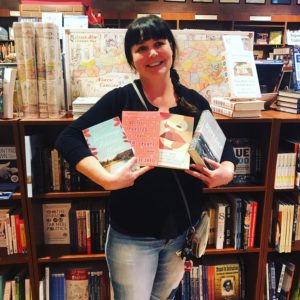 bookstore is so vast, beautiful, and comfortable, it’s like Heaven to me. Recently, my son and I were in Raleigh for a tennis tournament, and at the top of my to-do list was to show him Quail Ridge.
bookstore is so vast, beautiful, and comfortable, it’s like Heaven to me. Recently, my son and I were in Raleigh for a tennis tournament, and at the top of my to-do list was to show him Quail Ridge.
Independent Bookstores offer something online sellers can’t provide: booksellers who read and care about books, who get to know their customers, who know what books to recommend to specific readers, a place to commune and listen to story time or spend an evening listening to authors read and speak, a place to discuss books. A place to turn your cell phone off and breathe.
These are a few of my favorite Indies!
Downtown Books, Manteo, NC
Ducks Cottage Books, Duck, NC
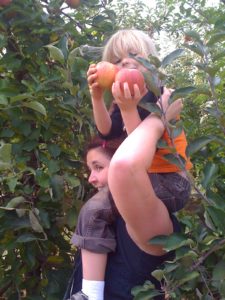
Island Bookstore, Kill Devil Hills, Duck, and Corolla, NC
Chop Suey Books, Richmond, VA
Fountain Bookstore, Richmond, VA
New Dominion Bookshop, Charlottesville, VA
Chapters Bookshop, Galax, VA
Scuppernong Booksin Greensboro, NC
Quail Ridge Books, Raleigh, NC
Fly Leaf Books, Chapel Hill, NC
Regulator Bookshop, Durham, NC
Park Road Books, Charlotte, NC
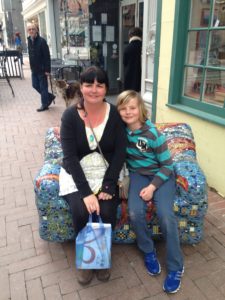
Malaprop’s Bookstore and Cafe, Asheville, NC
Aaron’s Books, Lititz, PA
Bards Alley, Vienna, VA
Word Brooklyn, Brooklyn, NY
Bank Square Books, Mystic, CT
Market Street Bookshop, Mashpee, MA
Yellow Umbrella Books, Chatham, MA
Book Passage, San Francisco, CA
